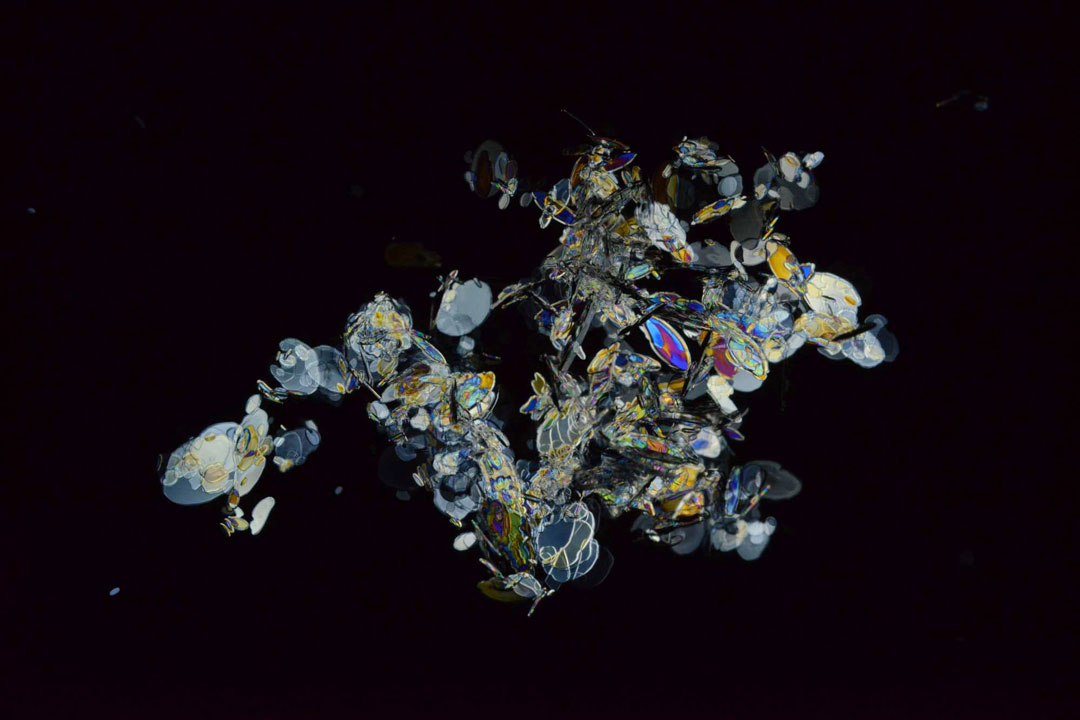Frozen Kaleidoscope
Award: Semifinalist Prize, Images of Research Competition 2017

| Submitted by: | Vincent McFarlane |
| Department/Faculty: | Civil and Environmental Engineering |
| Place of creation: | U of A Civil Engineering Cold Room Laboratory |
Frazil ice particles form in the turbulent supercooled waters of northern rivers prior to freeze-up. The individual particles suspended in the flow are primarily disc-shaped, very small (maximum of ~4 mm in diameter), and upon contact with each other will freeze together into complex formations called flocs. Shown here is a frazil floc approximately 1.1 cm tall and 1.8 cm wide composed of many individual particles. This image was captured as part of a study into the size distribution and concentration of suspended frazil ice particles at different stages of the frazil ice formation process and under different turbulent flow conditions. The particles were produced in a continuously mixed tank of water in the Civil Engineering cold room laboratory and photographed as they passed between two cross-polarising filters. Any light passing through the ice particles was refracted and shows up bright and colourful in the images, while the un-refracted background light became blacked out. This produced an image with very high contrast and ideal for image processing, but also resulted in the beautiful kaleidoscope-like effect shown here. The scale of this image is 2.8 √ó 4.1 cm.

